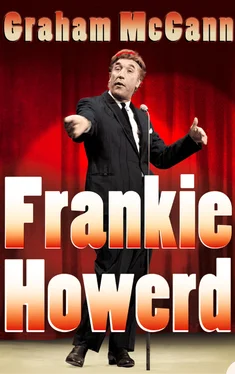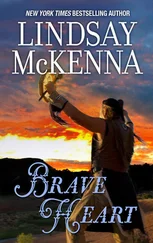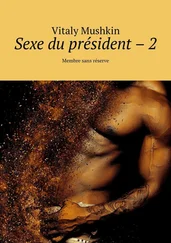By the time, therefore, that Frank began his spell as a Sunday School teacher, his strong sense of duty to the Church was already prone to distraction from his even deeper desire to perform. Things soon grew worse, as far as spiritual matters were concerned, when he found himself obliged, as part of the preparation for his new duties, to join his fellow-tutors each Monday evening at Reverend Chisholmâs home in Appleton Road for tea, cake and very, very, lengthy hermeneutical advice: âI remember how Iâd look at him, trying to be attentive, but with my mind wandering to films and music and the theatre.â 35
The problem was not just that so little now seemed to be seeping in; it was also that so much that was already in seemed to be leaking out. With nothing more to rely on than a wafer-thin recollection of the basic theme of the kindly but rather dull Reverend Chisholmâs latest briefing, Frank would find that he had no choice but to improvise his way through each one of his own Sunday School sessions, spending more time regaling his audience with tales of Robin Hood, Morgan the Pirate and Sexton Blake than he did engaging them with any pertinent biblical issues, axioms or events. His popularity soared as an unusually entertaining teacher, but so too did his sense of guilt as an increasingly heavy-lidded trainee saint: âI thought Iâd let God down in some way.â 36
He soldiered on for a while in a state of stubborn denial, unable to face up to the fact that he was on the verge of disappointing a mother who seemed so proud that he had found what she had taken to terming his âcallingâ. 37 Then, to his great surprise and immense relief, he stumbled upon a compromise: the deceptively perceptive Reverend Chisholm, sensing that his protégé was an extrovert trapped in an introvertâs cassock, encouraged him to join the Church Dramatic Society. It struck Frank immediately as an inspired piece of advice: now, instead of having to abandon the Church for the theatre, he could accommodate the theatre within the Church.
The Societyâs upcoming project was a revival of Ian Hayâs 1919 Cinderella -style drawing-room comedy Tilly of Bloomsbury , and the newest member of the company made no attempt to disguise the fact that he was âpathetically eagerâ to take part. 38 Although the play had acquired a certain reputation for containing several roles that were suitable for the most âwoodenâ of actors (even the BBCâs notoriously teak-taut Director-General, John Reith, had managed to march his way through a recent amateur production without appearing too out-of-place 39 ), it was immediately clear to the current producer, Winifred Young, that Frank represented a serious casting challenge. Auditioning for the relatively undemanding part of Tillyâs working-class father, he was excruciatingly bad, reading his lines âin an incoherent gabble, flushing in a manner that would make a beetroot look positively anaemic, knocking over the props in my clumsiness â and embarrassing everyone in my anxiety to pleaseâ. 40
When the ordeal was finally over, Mrs Young took him to one side, smiled a soft, sympathetic smile and then asked him: âWill you let me help you?â Astonished that he was not being admonished, he stuttered an eager âYesâ in grateful reply. 41
From that moment on, this gifted and compassionate amateur director worked as Frankâs private â and unpaid â tutor. Every Tuesday and Thursday evening, he would spend two taxing but hugely rewarding hours at her house, gradually learning how to overcome his stammer, start the process of mastering his role and, perhaps most importantly of all, begin believing in himself: âShe taught me how to âee-nun-cee-ate,â to be calm, to concentrate on the performance â and to forget myself as a self-pitying nonentity.â 42
He would later claim that he owed âas much to Winifred Young as to anyone else in my careerâ, speculating that without her intervention âthere might not have been any career, merely bitter frustrationâ. 43 There was certainly no doubting her immediate effect: she transformed him, within a matter of a few short weeks, from a painfully awkward-looking nervous wreck into the showâs most notable success.
Frank came through it all without offering the audience more than barely a hint of his former hesitation, anxiety and self-doubt, and, in spite of the modest size and nature of his role, his performance had drawn the warmest of all the applause. For the first time in his life, he felt triumphant.
Someone who happened to encounter him backstage after the show told him matter-of-factly: âYou should be an actor.â 44 Those five words, regardless of whether they were uttered out of honesty, politeness or perhaps even a playful sense of sarcasm, triggered a profoundly positive effect on the still-exhilarated novice performer, serving as âa sudden and instant catalyst on all my vague hopes and half-dreams, fusing them into an absolute certitude of determinationâ. 45 That moment, the adult Frankie Howerd would always say, was the special one, the turning point, the moment when â all of a sudden â he really knew: â[F]rom that night on I never deviated from a sense of destiny almost manic in its obsessive intensity.â 46
There would be no more talk of St Francis. The future was for Frank the Actor.
CHAPTER 2
A Stuttering Start
Well. No. Yes. Ah.
They coined a new nickname for Frank Howard at Shooters Hill school: âThe Actorâ. 1 He loved it.
He loved the idea that an actor was what he was set to become. It might only have been 1932, three long and arduous maths-and Latin-filled years before he was due to leave school, but already, as far as he was concerned, acting was the only thing that really mattered.
Having acquired his initial theatrical experience under the auspices of his church, Frank now proceeded to advance his acting ambitions inside his school, joining its own informal dramatic society and establishing himself very quickly as one of its most lively and distinctive figures. Gone, in this particular context at least, was the insecure loner of old, and in his place was to be found a far more sociable, self-assured and increasingly popular young man: his whole manner and personality appeared to come alive, growing so much bigger and bolder and brighter, whenever the action switched from the classroom to the stage. Here, at least, he knew what he was doing, and he knew that what he was doing was good.
Right from the start, he made it abundantly clear that he was eager to try everything: acting, writing, direction, production, promotion â whatever it was, he was willing to do it, work at it and, given time, perhaps even master it. Everywhere that one looked â backstage, in the wings, centre stage, even at the table with the tickets right at the back of the school hall â Frank Howard seemed to be there, still slightly stooped, still slightly stammering, but now entirely immersed in the experience.
As a performer, he progressed at quite a rapid rate. Although he was hardly the type, even then, to lose himself in a role â his playful disposition, in addition to his distinctive voice and looks, conspired against the pursuit of such a style â his obvious enthusiasm, allied to his lively wit, ensured that each one of his stage contributions stood out and stayed in the mind. At his most inspired, such as the occasion when he played the spoiled and rascally Tony Lumpkin in Oliver Goldsmithâs satire She Stoops to Conquer , he showed real comic promise, relishing the chance to release all of the dim-witted verve that he had found lurking in the original text. 2
Читать дальше












